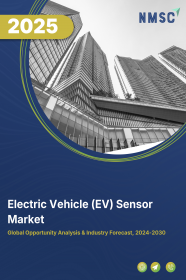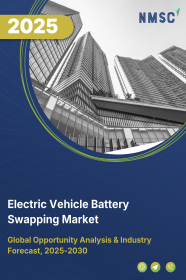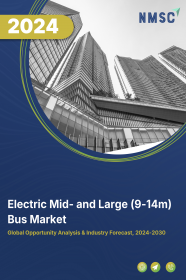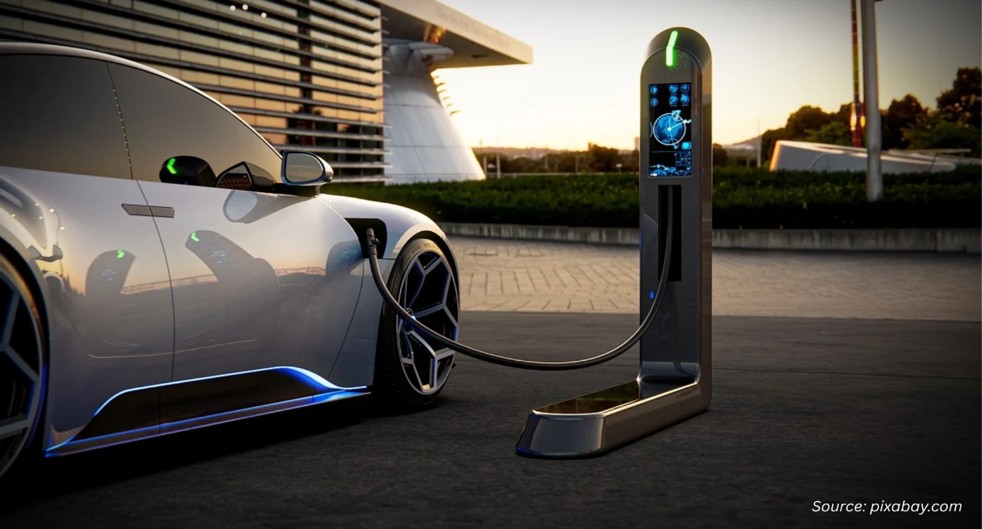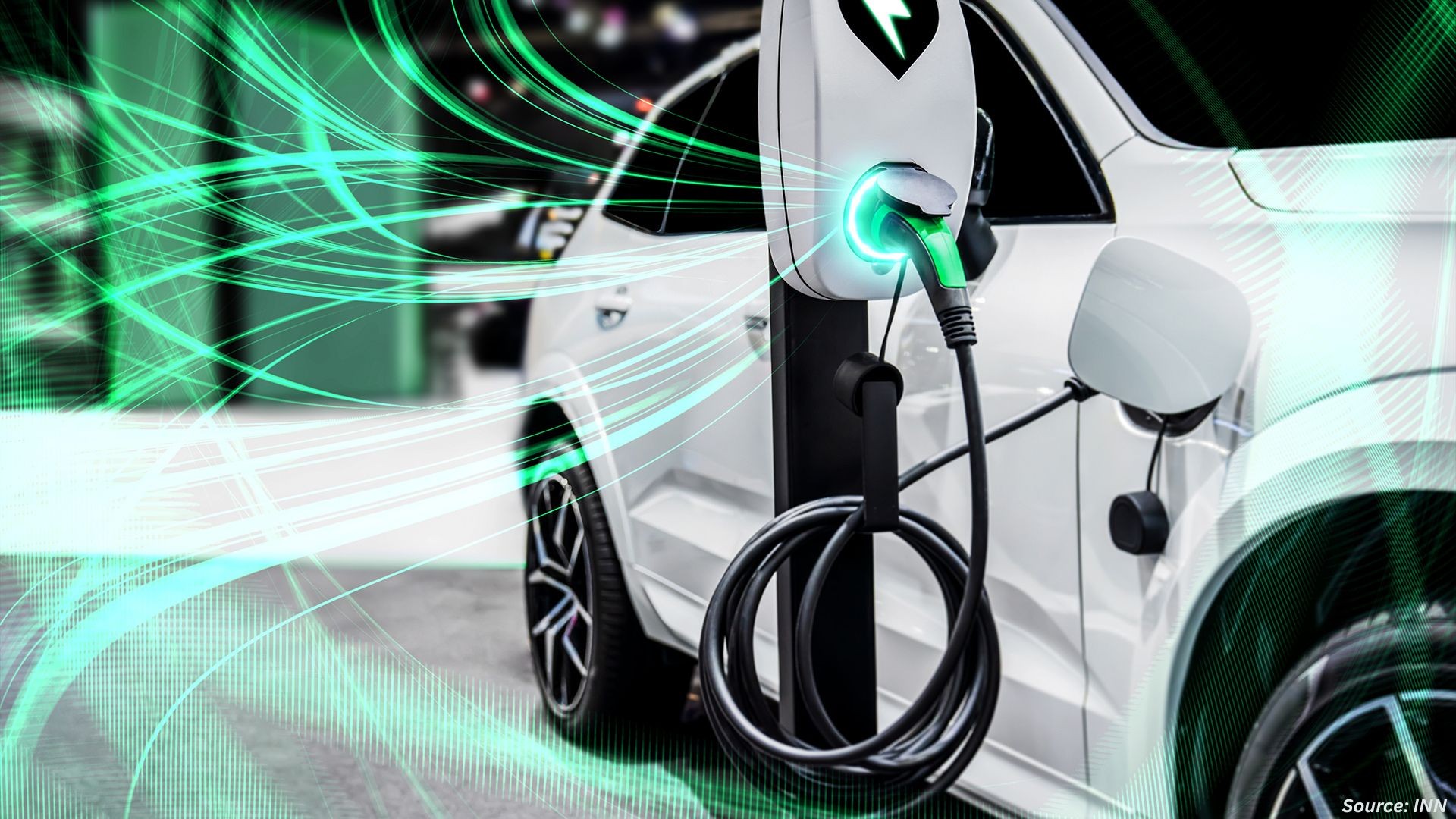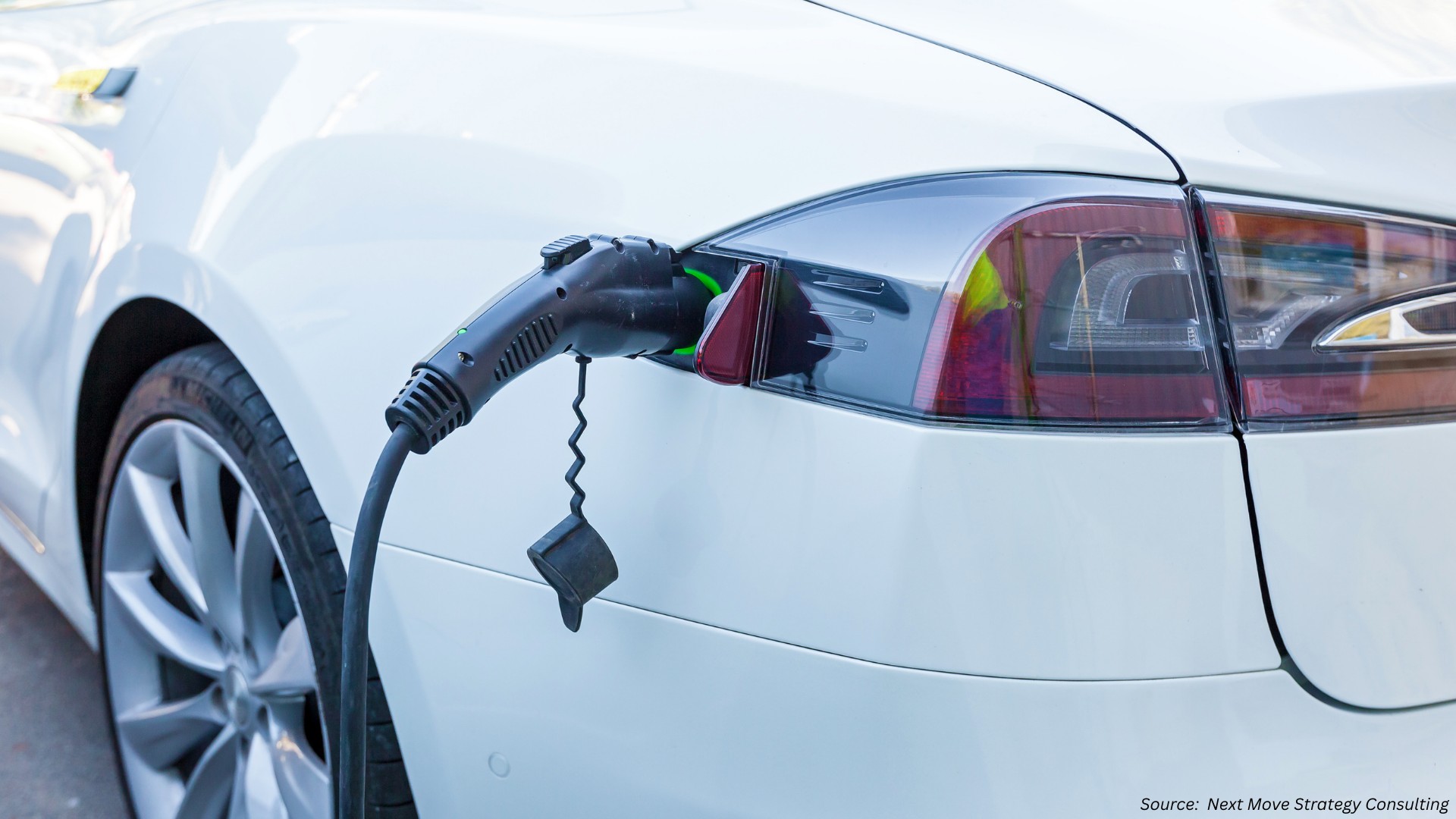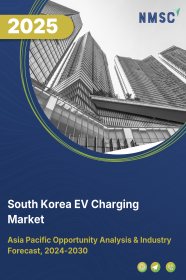
South Korea Electric Vehicle (EV) Charging Market by Type of Charger (AC Chargers, and DC Chargers), by Charging Speed (Level 1, Level 2, and Level 3), by Connector Type (Type 1, Type 2, CCS, CHAdeMO, and Others), by Installation (Fixed, and Portable), by End User (Commercial, and Residential) – Opportunity Analysis and Industry Forecast 2023–2030
Industry: Automotive & Transportation | Publish Date: 23-Oct-2025 | No of Pages: 111 | No. of Tables: 116 | No. of Figures: 61 | Format: PDF | Report Code : AT869
Market Definition
South Korea Electric Vehicle (EV) Charging Market was valued at USD 413.61 million in 2022, and is predicted to reach USD 4800.6 million by 2030, with a CAGR of 36.3% from 2023 to 2030. Electric vehicle chargers are characterized by the rate at which they deliver energy to the vehicle's battery. They serve as a vital infrastructure connecting plug-in electric vehicles to electrical outlets for the purpose of recharging the vehicle's battery. These chargers facilitate the charging process by supplying the necessary electrical energy to the EV's battery.
Charging stations are compatible with electric vehicles, neighborhood electric vehicles (NEVs), and plug-in hybrids, allowing them to connect to an electrical source for charging. Some charging stations come equipped with advanced functionalities such as smart meters, cellular connectivity, and network access.
The charging of EVs can be carried out through several levels of charging such as level 1, level 2, and level 3. The higher the level of charging, the faster the charging process causing more power to be delivered to the vehicle. The use of electric vehicles significantly reduces the carbon footprints released into the atmosphere, which contain toxic gas. The growing threat of carbon emissions and other harmful gases stemming from transportation has triggered the vital necessity of adopting electric vehicles.
In addition, the penetration of EV charging is high in commercial spaces as compared to residential ones. Long-distance trips would benefit from ultra-fast charging capabilities made possible by public charging infrastructure. However, EV chargers for residential spaces offer significant growth potential as they are affordable and more convenient for charging electric vehicles as compared to commercial charging stations.
Strong Government Support and Ambitious Targets Driving Infrastructure Growth
The South Korean government is a key driver of the EV charging market, with robust policies and ambitious targets aimed at accelerating the transition to electric mobility. The "Act on Promotion of Development and Distribution of Environment-friendly Motor Vehicles" mandates the installation of EV chargers in new and existing buildings, including public facilities, multi-unit dwellings, and large-scale retail stores. This has significantly increased the availability of chargers in residential and commercial areas.
Furthermore, the government has set a goal of deploying 1.2 million EV chargers by 2030. To achieve this, various subsidy programs have been introduced to incentivize the installation of both slow and fast chargers, reducing the financial burden on private operators and individuals. These policies create a favorable environment for investment and ensure a steady expansion of the charging network to keep pace with the growing number of EVs on the road.
Major Conglomerates (chaebols) Accelerating Innovation and Market Expansion
South Korea's powerful conglomerates, or chaebols, are playing a pivotal role in driving the growth and technological advancement of the EV charging market. Companies like Hyundai, SK, LG, and Lotte are not only manufacturing EVs but are also heavily investing in the entire charging ecosystem. Their involvement spans from producing advanced charging hardware to developing sophisticated software platforms for managing charging networks.
For instance, Hyundai Motor Group is actively expanding its high-speed charging network, "E-pit," which offers ultra-fast charging capabilities. Similarly, the SK Group, through its subsidiary SK Signet, has become a leading manufacturer of fast chargers, supplying its technology both domestically and internationally. This deep involvement of major industrial players fosters a highly competitive and innovative market, leading to rapid technological advancements, improved user experience, and a scalable, reliable charging infrastructure.
Concentration of Charging Infrastructure Leading to Regional Disparities
A significant restraint on the South Korean EV charging market is the uneven distribution of charging infrastructure, which is heavily concentrated in the capital city of Seoul and the surrounding Gyeonggi Province. This regional imbalance creates "charging deserts" in less populated and rural areas, making it inconvenient for EV owners in those regions and potentially hindering further EV adoption outside of major urban centers.
While the total number of chargers in the country is growing, the lack of accessibility in certain areas remains a critical issue. This disparity is partly due to private operators prioritizing high-traffic urban locations where they can expect a faster return on investment. Addressing this challenge will require more targeted government incentives and policies to encourage the development of charging infrastructure in underserved regions, ensuring equitable access for all EV drivers across the country.
Growing Demand for Battery-swapping and Other Innovative Charging Solutions
As the EV market in South Korea matures, there is a significant opportunity for the development and adoption of innovative charging solutions beyond traditional plug-in chargers. Battery-swapping technology, in particular, presents a promising area for growth, especially for commercial fleets like taxis and delivery vehicles that require minimal downtime. This technology allows drivers to exchange a depleted battery for a fully charged one in a matter of minutes, offering a convenient alternative to time-consuming charging sessions.
Leading companies are already exploring this space, and the government has begun to support pilot programs for battery-swapping services. In addition to battery swapping, there is also growing interest in wireless charging and integrated energy solutions that combine EV charging with renewable energy sources and energy storage systems. These emerging technologies offer a significant opportunity for companies to differentiate themselves in a competitive market and address the evolving needs of EV users, further driving the growth of the overall EV ecosystem in South Korea.
Competitive Landscape
The South Korea Electric Vehicle (EV) Charging industry includes several market players such as ABB, delta, Tesla, Schneider Electric, chaevi, Kstar, Evar corp, BP PLC (PULSE), PowerCubeKorea, ChargePoint (Genis group), Hyundai KEFICO, SK signet, Blink charging, GreenC Ltd., Siemens, and Others.
South Korea Electric Vehicle (EV) Charging Market Key Segments
By Type of Charger
-
AC Chargers
-
Mode 1 (2.3 kW)
-
Mode 2 (2.3 kW)
-
Mode 3 (3.7 kW to 22 kW)
-
-
DC Chargers (22 kW to 350 kW)
By Charging Speed
-
Level 1
-
Level 2
-
Level 3
By Connector Type
-
Type 1
-
Type 2
-
CCS
-
CHAdeMO
-
Others
By Installation
-
Fixed
-
Portable
By End User
-
Commercial
-
Commercial Public EV Charging Stations
-
Highway Charging Stations
-
Fleet Charging Stations
-
Workplace Charging Stations
-
-
Commercial Private EV Charging Stations
-
-
Residential
-
Private Homes
- Apartments
-
Key Players
-
ABB
-
delta
-
Tesla
-
Schneider Electric
-
chaevi
-
Kstar
-
Evar corp
-
BP PLC (PULSE)
-
PowerCubeKorea
-
ChargePoint (Genis group)
-
Hyundai KEFICO
-
SK signet
-
Blink charging
-
GreenC Ltd.
-
Siemens
Report Scope and Segmentation
|
Parameters |
Details |
|
Market Size in 2022 |
USD 413.61 Million |
|
Market Volume in 2022 |
41 Thousand Units |
|
Revenue Forecast in 2030 |
USD 4800.6 Million |
|
Growth Rate |
CAGR of 36.3% from 2023 to 2030 |
|
Analysis Period |
2022–2030 |
|
Base Year Considered |
2022 |
|
Forecast Period |
2023–2030 |
|
Market Size Estimation |
Million (USD) |
|
Growth Factors |
|
|
Companies Profiled |
15 |
|
Market Share |
Available for 10 companies |
|
Customization Scope |
Free customization (equivalent up to 80 working hours of analysts) after purchase. Addition or alteration to country, regional, and segment scope. |
|
Pricing and Purchase Options |
Avail customized purchase options to meet your exact research needs. |

















 Speak to Our Analyst
Speak to Our Analyst



